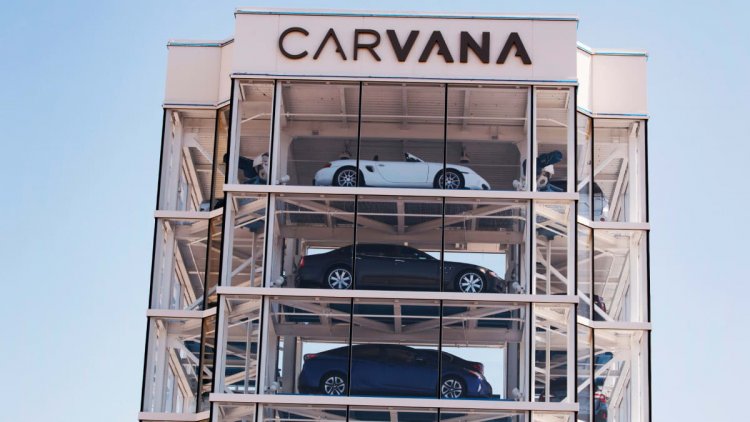Carvana, the Amazon of Used Cars, Is Collapsing
The Amazon of used cars lost a third of its market value on Wednesday and payment deadlines loom.

The Amazon of used cars lost a third of its market value on Wednesday and payment deadlines loom.
Carvana, the Amazon of used cars, on Wednesday is having one of its worst days on Wall Street.
Carvana shares fell more than 36% to $4.27 as doubts about the company's ability to meet its payment deadlines piled up.
The figures are terrible: The stock has lost 45% since the beginning of December. The month of November was brutal as Carvana shares fell 43%. The stock, which ended 2021 at $231.79, is now down 98% since January.
The market capitalization now sits at $760 million. In a nutshell, the comparative market value, if shares outstanding were the same in both periods, would have been $41.45 billion on Dec. 31, 2021.
The question now seems to be whether the company can get through this very difficult period or whether it could file under the bankruptcy laws. Analysts are concerned about its cash position.
Creditors Are Losing Patience
Carvana was a market and hedge fund darling just over a year ago.
But recently the private-equity firm Apollo Global Management (APO) - Get Free Report and Pacific Investment Management, known as Pimco, signed a pact to join in negotiations with the company in order to recover their investments, reports Bloomberg News.
They are part of a group of funds holding about $4 billion of Carvana's unsecured debt.
Carvana’s $3.3 billion bond due in 2030 trades at roughly 42 cents, down from 79 cents at the start of the year, according to Bloomberg News.
The duration of this pact is three months, which suggests that these funds are convinced that the company, which aimed to revolutionize the way used cars are purchased, will be in default very soon.
With Carvana bonds below 50 cents on the dollar, investors signal that the probability that the company does not meet its obligations is high.
"These developments indicate a higher likelihood of debt restructuring that could leave the equity worthless in a bankruptcy scenario, or highly diluted in a best case,” Wedbush analyst Seth Basham wrote to a note to clients on Dec. 7.
The analyst cut his target price on the stock by 89% to $1.
Other analysts echo the sentiment, including Bank of America Securities' Nat Schindler.
"We now believe that without a cash infusion, Carvana is likely to run out of cash by the end of 2023," Schindler said on Nov. 30.
And "there is no indication yet of a potential cash infusion, for example from the Garcia family" -- Chairman and CEO Ernie Garcia and his father -- "and it is impossible to predict if and when that would occur.”
Carvana didn't respond to a request for comment.
Slashing Costs
The company has between $6 billion and $7 billion in debt net of the cash on the balance sheet, according to FactSet.
But Carvana is not profitable: its adjusted Ebitda-margin loss increased by 6.2% in the third quarter. Ebitda refers to earnings before interest, taxes, depreciation and amortization, which helps investors to gauge the financial health of a company.
The company is drastically slashing costs to slow the bleeding: After cutting 2,500 jobs in May, the company recently announced an additional 8% cut in the workforce, or 1,500 employees.
Carvana, founded in 2012 and based in Arizona, took advantage of favorable conditions to market its new way of buying a car. The group's car vending machines fared well during the pandemic, a period when consumers wanted to avoid physical contact as much as possible, to limit their exposure to the virus.
The federal government had also flooded consumers with money via stimulus programs. Interest rates were almost at zero, which meant that financing the purchase of a vehicle cost practically nothing.
Added to this, the supply chains of car manufacturers were disrupted, which made the production of new vehicles difficult. Faced with these challenges, consumers turned to the second-hand market as the waiting times for new vehicles were long. Used car prices therefore jumped, making it a good environment for Carvana.
But everything has completely changed for Carvana. The company is notably facing the aggressive increase in interest rates by the Federal Reserve in order to fight inflation. The rate rise is a double whammy for Carvana. It increases the cost of credit for consumers wanting to buy a vehicle and it also increases borrowing costs for businesses wanting to invest.
Additionally, high interest rates are bad for Carvana, as the group has a lot of debt and therefore owes millions of dollars in interest related to its debt. The company burned more than $1 billion in cash in the first three quarters of the year.
What's Your Reaction?



























































